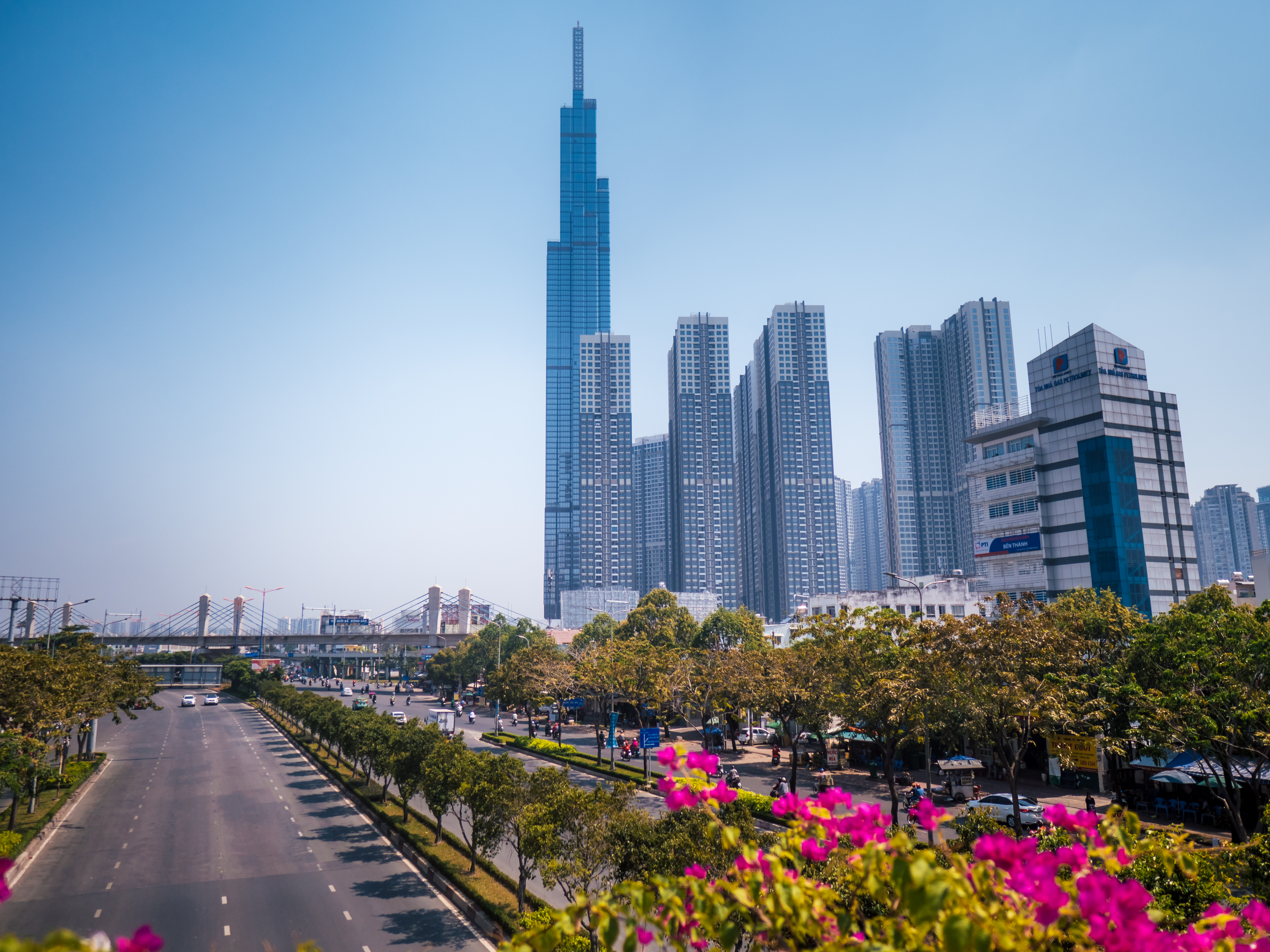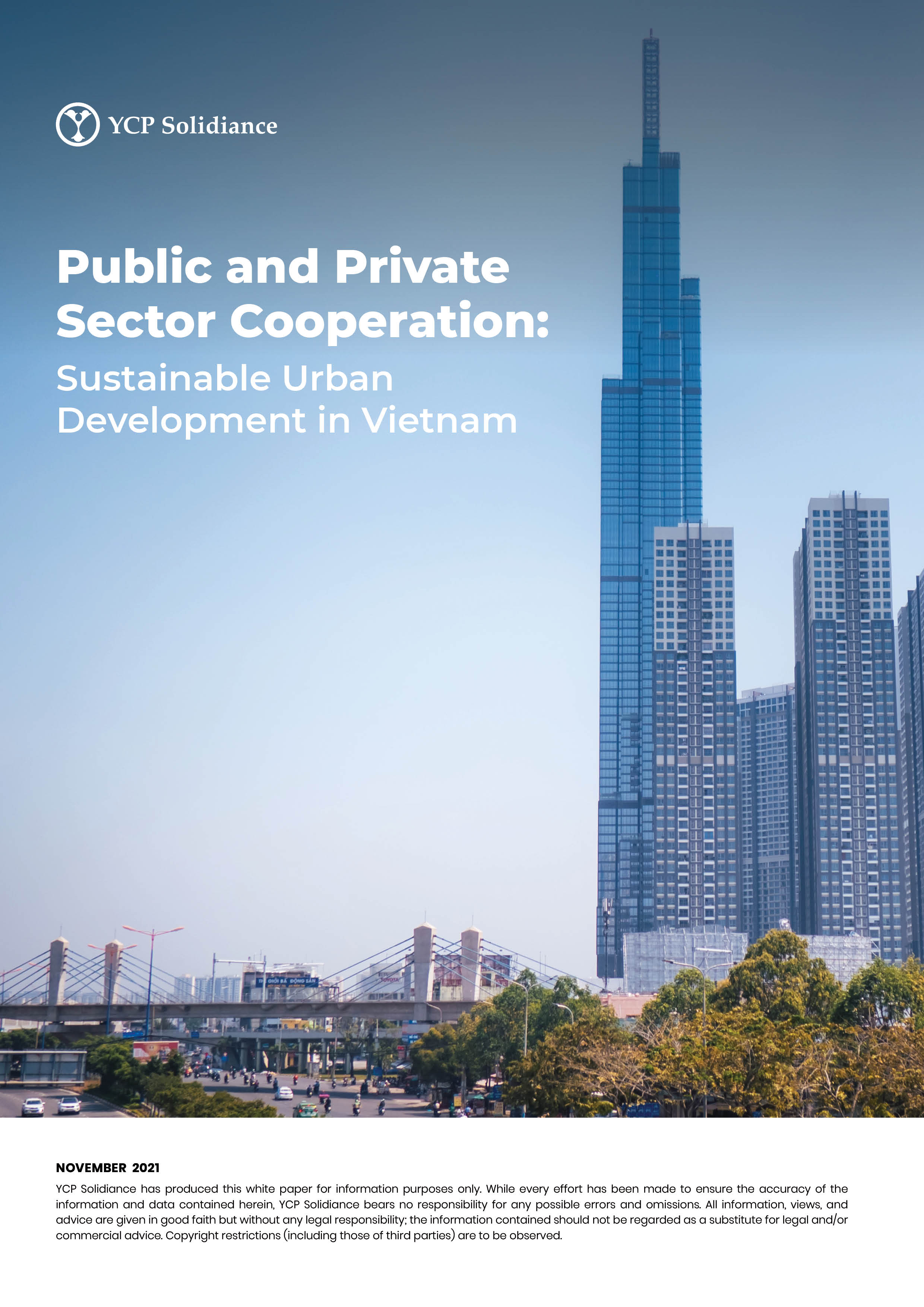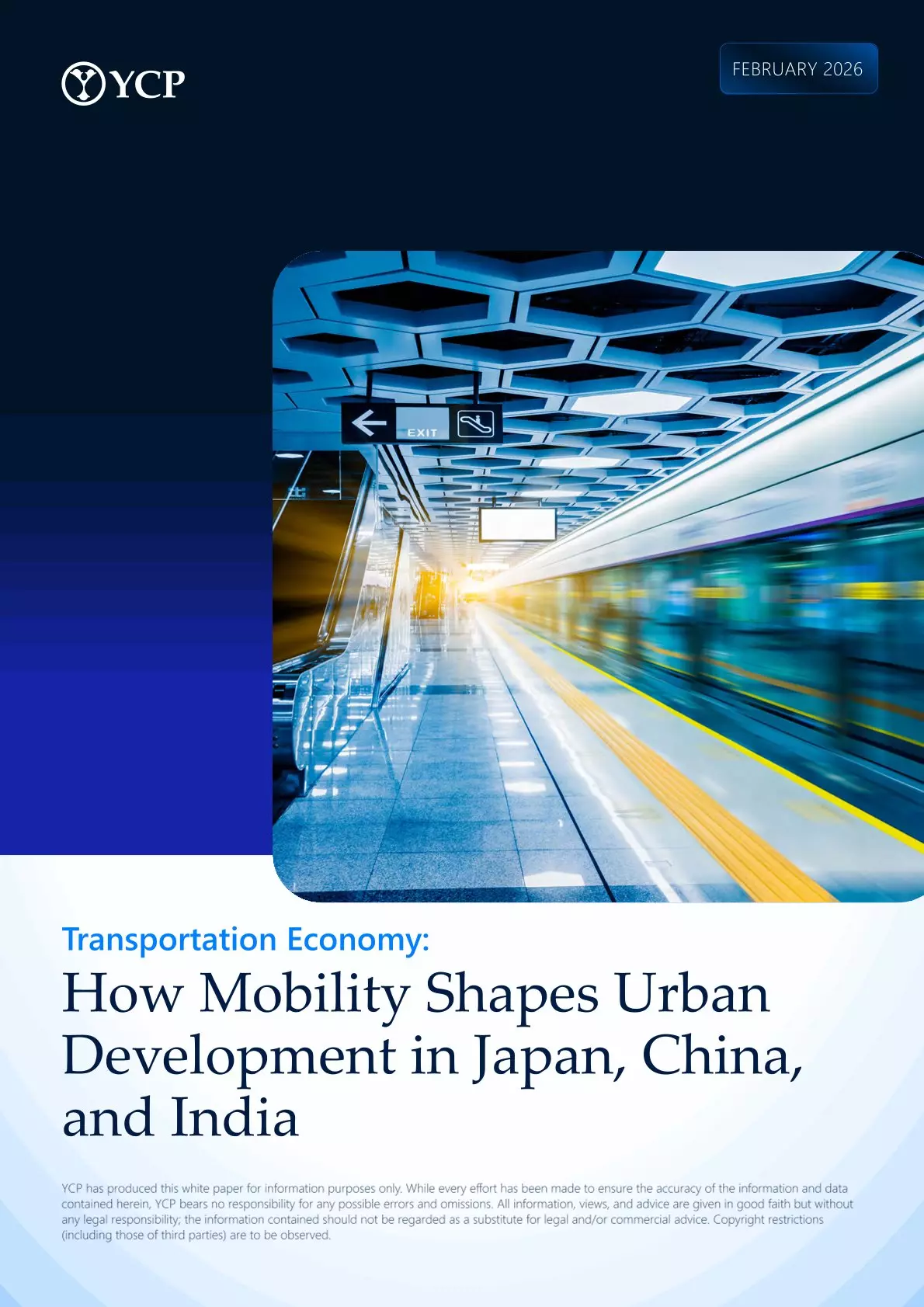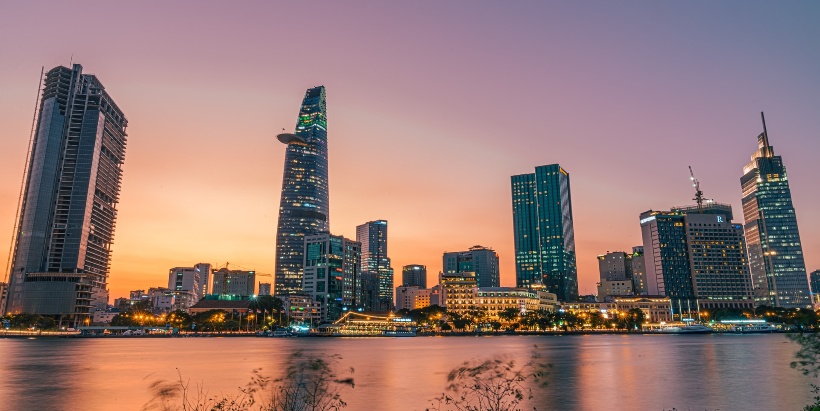As the center of economic, commercial, and political activity, the larger cities of Vietnam play a vital role in maintaining social stability and the increasingly high standard of living now demanded by its citizens. In recent years, the Vietnamese government has been focusing on infrastructure and economic development in these areas, which has further called attention to the environmental impact and overall sustainability offered by these major urban hubs.
The recently published Decision No.749/QD-TTG, or the Program for National Digital Transformation for 2025-2030 helps emphasize Vietnam's approach in developing smart city roadmaps and frameworks. Among the regulatory provisions within the plan is the call to encourage further public and private sector collaboration, specifically with utilizing digitalization to improve the core pillars of Vietnam’s economy and establish green practices.
This white paper is an update to a previous report by YCP Solidiance on smart cities, and explores the following areas of potential development that will set the tone for the future sustainability of Vietnam’s urban centers:
- Infrastructure: This area plays a vital role in the sustainable development of cities and the adoption of intelligent technology, focusing primarily on the sectors of logistics and energy.
- Transportation: Various transportation options, both public and private, are currently adapting to support the constant movement of people and goods both within and outside of major urban centers. Finding a sustainable yet reasonably priced solution to address transport issues is proving to be the biggest hurdle in this area.
- Green Buildings: The usage of green building materials and the application of less environmentally impactful designs are becoming more popular in both residential and corporate construction, due to it being encouraged and incentivized by the government.
- Green Spaces: These areas have become integral to improving the quality of daily life due to a combination of factors such as Southeast Asia’s tropical climate, a high number of high-density metropolitan areas, traffic congestion, noise pollution, and poor air quality.
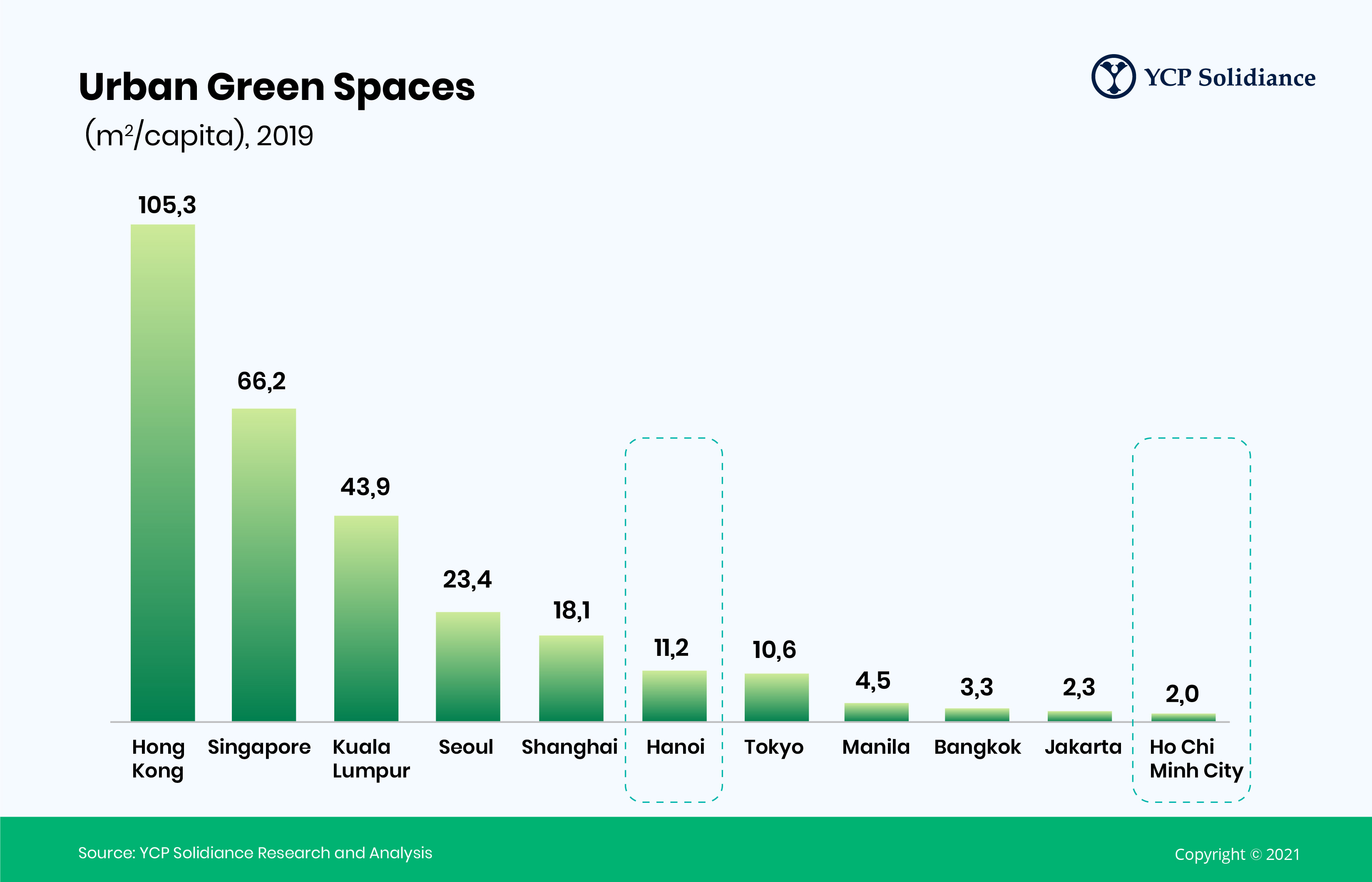
Furthermore, the launch of the Program for National Digital Transformation for 2025-2030 acts as a guideline for cities to formulate their respective smart city roadmaps. Public and private sector collaboration is also crucial to increasing sustainability development, as these two sectors must work seamlessly together to ensure the success of Vietnam’s plans to go green.
